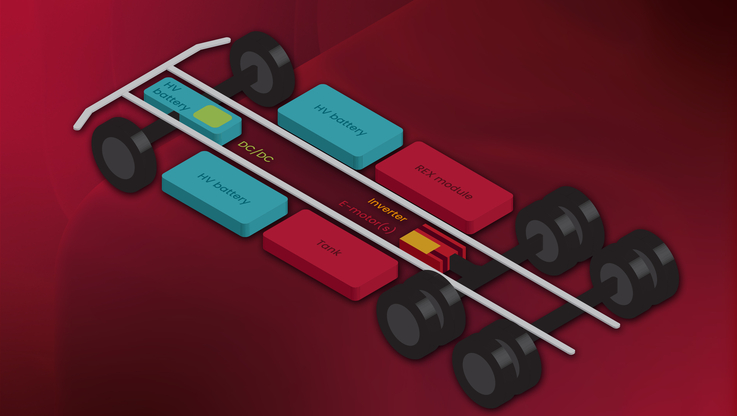Pobierz materiał i Publikuj za darmo
Berlin, 30.11.2021: Many people in Europe would like to be able to charge their electric vehicle (EV) at public charging stations and to pay with their own bank card. More than two-thirds of the respondents confirm this in a recent study conducted by infas quo GmbH on behalf of the Initiative Deutsche Zahlungssysteme e.V. in selected European countries. Currently, payment options at charging stations across Europe are still dominated by proprietary, closed loop payment solutions from charging station operators and local electricity providers - spontaneous payment by common debit and credit cards is often not possible. With the Alternative Fuels Infrastructure Regulation (AFIR), the European Parliament now has it in its hands to meet the interest of European citizens in easily accessible and non-discriminatory payment solutions for electric charging in legislation.
Attitudes to card payments are similar across borders
To obtain a balanced picture of consumers’ payment preferences across Europe, the survey was conducted in various European countries of diverse banking and payment infrastructures (France, Greece, the Netherlands, Poland, Slovenia, and Sweden). If consumers were able to make a free choice at the charging station, a clear majority in all the countries surveyed, would prefer to pay the amount due for electric charging with their bank card, or the debit or credit card stored in their smartphone. At 91 percent, Greece has the highest approval ratings. But the will of the consumer is also clear in France and Poland (89 percent each), Slovenia (83 percent), the Netherlands (79 percent), Germany (78 percent), and Sweden (67 percent).
Uniform payment solutions throughout Europe will make a decisive contribution to the acceptance of e-mobility
The market potential for e-mobility is huge: a very large number of respondents are already planning to buy an electric vehicle. Poland and Greece are at the forefront here. There, 77 percent and 75 percent, respectively, are planning to buy a new or used EV. In all the other countries surveyed, approval is also at more than 50 percent in each case. However, without uniform and easily accessible payment solutions, traveling through Europe by electric vehicle is currently much more difficult than with conventional combustion cars. Spontaneous charging is almost impossible. For widespread acceptance of e-mobility, however, electric refueling has to be as easily accessible and consumer-friendly as normal refueling. Actively promoting this acceptance is an important step toward achieving the Paris climate targets. Future EV owners firmly expect to use public charging stations. Especially in the Netherlands (76 percent) and Slovenia (76 percent), but also in Germany (71 percent), Poland (70 percent), Sweden (67 percent), France (55 percent) and Greece (24 percent), future EV drivers plan to stop at public charging stations. They want to be able to rely on a well-developed network, as they are already used to from the conventional gas station infrastructure, without being dependent on one charging service provider.
AFIR: A solution for Europe
The majority of the surveyed European countries consider an EU-wide regulation to be useful that ensures the acceptance of contactless payment with at least one common debit or credit card at every new charging point. The biggest supporters are citizens from Greece (81 percent) and Germany, the Netherlands, and Slovenia (76 percent each), followed by Poland (71 percent), France, and Sweden (65 percent each). The European Commission has now recognized that payment at charging stations is an important aspect in the expansion of a cross-border, consumer-friendly charging infrastructure. The new Alternative Fuels Infrastructure Regulation (AFIR) is intended, among other things, to simplify payment at European charging stations, thus bringing with it the opportunity to make the payment process as simple as possible for consumers. After all, the current chaos of payment schemes, including apps, RFID charging cards, and credit accounts, is making the switch to e-mobility more difficult for consumers and making them feel very insecure.
The course in Germany has already been set by the legislator
In Germany, the federal government has followed the wishes of its citizens. The amended German charging station regulation will come into force in 2023 and will regulate by law the mandatory acceptance of debit and credit cards at public charging stations. Freedom of choice when paying is important to very important to 78 percent of the future EV drivers surveyed in Germany. In this context, 79 percent prefer to pay at charging stations using their familiar girocard (German debit card) or credit card - physically or digitally on their smartphone. Having your own bank card enables secure, consumer-friendly and non-discriminatory payment at the charging station without prior registration with a charging service provider. By contrast, respondents in Germany give a thumbs-down to separate apps and QR codes: Only five percent find paying the bill with an RFID card or charging app with prior registration and billing by the electricity provider attractive. Only a further seven percent want to pay by scanning a QR code with their smartphone and entering payment data via a mobile website at charging points. The amendment of the German charging station regulation could point the way for this decision and provide a practicable and cross-border applicable problem-solving approach for the whole of Europe.
The survey results clearly show: consumers in Europe want to be able to pay at charging stations with common debit or credit cards - as plastic card or digital version in their smartphone - in the future. With the new Alternative Fuels Infrastructure Regulation (AFIR), the EU now has the opportunity to meet the desire for freedom of choice and easily accessible payment options at charging stations.
More results of the study can be found here.
About the study
The results are based on a representative online survey conducted by infas quo GmbH on behalf of the Initiative Deutsche Zahlungssysteme among motor vehicle owners aged 18 and over in September 2021 in Germany (1,058 people) and November 2021 in France (538 people), Greece (535 people), the Netherlands (514 people), Poland (529 people), Slovenia (538 people) and Sweden (535 people). The countries surveyed differed in particular in their location in Europe as well as the spread of e-mobility and their banking and payment infrastructures. The press release on the German results can be found here.
About the Initiative Deutsche Zahlungssysteme e.V.
The Initiative Deutsche Zahlungssysteme e.V. (German Payment Systems Initiative) based in Berlin, sees itself as a network for companies and institutions that accept cashless payment methods of the German credit industry or provide the necessary infrastructure. It bundles the interests of its members and represents them in relation to politics and the media. The association researches new application possibilities, initiates pilot projects, and supports existing activities of its members, especially in the areas of marketing, public relations, and public affairs. The German Payment Systems Initiative has been dealing with payments in Germany for fifteen years.
About the payment method
There are around 100 million girocards from banks and savings banks in Germany - almost every citizen has them in their pockets. More and more banks and savings banks are offering their customers the convenient service of contactless payments with cards and smartphones with the girocard, the most widely used debit card in Germany. You can find more information at www.Initiative-DZ.de.
CONTACT:
Initiative Deutsche Zahlungssysteme e.V.
Elen Anka
tel. +49 30 – 21 23 42 2 – 71
e-mail: elen.anka@initiative-dz.de
Source: APA-OTS
Pobierz materiał i Publikuj za darmo
bezpośredni link do materiału
| Data publikacji | 30.11.2021, 13:40 |
| Źródło informacji | APA-OTS |
| Zastrzeżenie | Za materiał opublikowany w serwisie PAP MediaRoom odpowiedzialność ponosi – z zastrzeżeniem postanowień art. 42 ust. 2 ustawy prawo prasowe – jego nadawca, wskazany każdorazowo jako „źródło informacji”. Informacje podpisane źródłem „PAP MediaRoom” są opracowywane przez dziennikarzy PAP we współpracy z firmami lub instytucjami – w ramach umów na obsługę medialną. Wszystkie materiały opublikowane w serwisie PAP MediaRoom mogą być bezpłatnie wykorzystywane przez media. |







